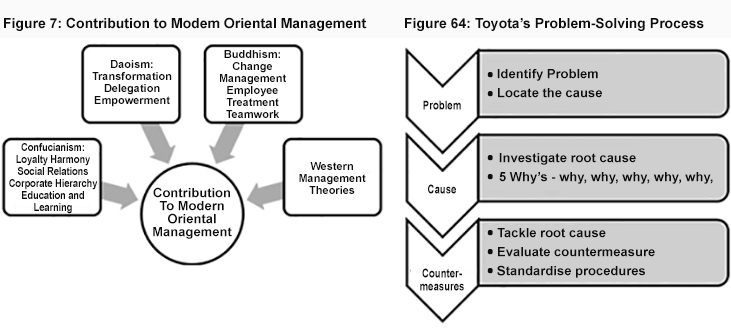System Upgrade on Tue, May 28th, 2024 at 2am (EDT)
Existing users will be able to log into the site and access content. However, E-commerce and registration of new users may not be available for up to 12 hours.For online purchase, please visit us again. Contact us at customercare@wspc.com for any enquiries.
This book aims to present an overview of Chinese, Japanese and Korean modern management styles. The cultures of China, Japan and Korea are influenced by Confucianism, Daoism and Buddhism. As such, there are some basic similarities in their management styles. As business operations become more internationalised, the management styles among Chinese, Japanese and Korean companies have blurred the lines of distinction between Western and Eastern cultures. The need for Western managers to adapt to Asian way of doing business, and likewise for Asian companies to understand Western business practices, means that managers have to bridge the gaps and adopt the best management practices containing both Western and Eastern elements.
Unlike the traditional approach of setting clear differentiation between Western and Eastern cultures, this book looks at Oriental management from a modern perspective, that is, the fusion of Western and Eastern management styles. By using a multifaceted approach to understanding modern Oriental management, the author stresses the complexities of the business environment in China, Japan and Korea. He suggests that Western theories of management are applicable to Eastern cultural context with some adaptations to the local environment. The author also offers valuable insights into the management styles of Oriental managers by providing a critical perspective of their thought processes in simple yet highly relevant illustrations of models and frameworks. This book is recommended for those who are interested in attaining a deeper knowledge of Oriental management practices.

Sample Chapter(s)
Section 1: Influences of Philosophy and Religion (2,015 KB)
Contents:
- Preface
- Acknowledgements
- About the Author
- Influences of Philosophy and Religion:
- Confucianism
- Confucianism Influences on Modern Management
- Daoism
- Modern Daoism's Application in Business
- Buddhism
- Contribution of Confucianism, Daoism and Buddhism to Modern Oriental Management
- Cultural Sensitivities:
- Cultural Dimensions
- Understanding Oriental Business Culture
- Failure of Foreign Companies in China
- Recent Corporate Events
- Chinese Management Styles:
- Chinese Management Practices
- Guanxi
- Management Paradox: Divide and Rule
- Sun Tzu Art of Management:
- Sun Tzu Art of Modern Management
- Analysis and Laying Plans
- Waging War
- Attack by Stratagem
- Tactical Dispositions
- Use of Energy
- Weakness and Strength
- Military Combat
- Variation of Tactics
- Army on the March
- Classification of Terrain
- Nine Terrains
- Fiery Attack
- Employing Spies
- Japanese Management Styles:
- Japanese Philosophy
- Japanese Management Practices
- Just-In-Time Manufacturing
- Kaizen
- Toyota Production System
- Theory Z
- Keiretsu System
- Influences of Western Management Styles
- Korean Management Styles:
- Korean Philosophy and Religions
- Korean Management Practices
- Chaebols
- Collaboration among Rivals
- Korean Culture
- Comparison of Chinese, Japanese and Korean Management Styles:
- Differences in Management Styles
- Core Values of Cultures
- West Learning from East:
- What Western Managers Could Learn from Their Eastern Counterparts?
- References
- Index
Readership: Readers who are interested in attaining a deeper understanding of Oriental management practices.
























